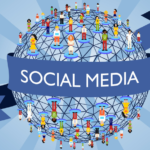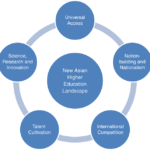Technology has become a huge part of our lives. It can be good or bad, depending on how we use it.
Democratising access to information is one of the greatest advantages of technology. Instead of needing to visit a library or own an encyclopedia, it is now easy to find the answer to any question.
1. It Saves Time
Science and technology saves time by automating tasks, streamlining data processing and communication, and providing 24/7 access to information. This enables businesses to operate more efficiently and effectively. However, it can also make jobs less necessary, causing unemployment. For example, computers can perform work tasks more quickly and accurately than humans. They can also complete repetitive and monotonous tasks, freeing human employees to focus on more creative projects.
Technology also reduces the amount of physical labor required to perform a task. For instance, robots can replace human workers in warehouses and other large facilities. This enables companies to save money on payroll and reduce labor costs. It can also reduce the need for manual data entry, allowing workers to spend more time on other important business tasks.
Another disadvantage of technology is that it can cause people to become dependent on it. This can lead to addiction, poor social skills, and lack of face-to-face interaction. In addition, it can lead to privacy concerns and security issues. Finally, some people may be unable to afford technology, which can leave them behind in the digital age.
In addition, science and technology can be dangerous if used improperly. For example, atomic and nuclear weapons are the result of technological advancements. Additionally, hackers can use technology to steal sensitive personal information. This can have serious financial repercussions for both companies and individuals.
2. It Makes Life Easier
Technology has made our lives much easier in many ways. One of the most obvious benefits is that it has allowed people to access information and content more easily. There is no need to spend hours searching for a specific topic; it is now possible to find any information online in seconds. In addition, technology has also made it easier to track data and improve productivity in the workplace.
Furthermore, technology has made it easier to travel and explore new places. It has also helped to preserve cultural heritage and make it easier for people to communicate with others from different cultures.
Additionally, technology has improved medical treatment and increased life expectancy. For example, vaccines like Covid-19 have helped prevent a lot of illness and death. It has also helped to provide more accurate diagnoses and treatment plans. This means that doctors can better treat their patients and ensure they get the best care possible.
However, there are some downsides to technology as well. It can lead to less physical activity and social interaction, and it can also be addictive. It can also create a digital divide, with some people being left behind as they do not have access to the latest technologies. Furthermore, technology can be expensive and may not be available to everyone. This can cause a significant amount of inequality in the world.
3. It Makes Communication Easier
Technology has greatly improved the way we communicate with one another. From text messages and phone calls to emails and social media, we now have more ways than ever to stay in touch with each other. It’s also easier to collaborate with coworkers from different locations using online communication tools like video chatting, chat apps, or cloud-based software.
Technology is a big part of business, and it makes a huge difference when it comes to communication with customers. It allows companies to track conversations and provide better customer service, and it’s a great way to build relationships with clients. However, some people fear that technology will eventually prevent us from building strong relationships with each other and will cause businesses to become faceless entities.
Another advantage of communication technology is that it’s a lot more environmentally friendly than sending physical letters. The average person sends 12.5 million tonnes of paper and cardboard each year, so it’s much better to use electronic methods of communication.
It also allows people to keep in contact with friends and family from all over the world, which is a great thing. However, it’s important to remember that there is a fine line between using technology for communication and letting it take over your life. If you spend too much time on the internet, it can lead to isolation and inactivity, which is not good for your health.
4. It Makes Life Easier
Technology makes life easier because it allows us to accomplish tasks in a faster and more efficient manner. In addition, it helps us to stay connected with people all over the world and communicate with them more easily than ever before. It also saves time and energy by automating certain processes, which can help us get more done in less time.
Another way that technology makes life easier is by giving us access to information that we wouldn’t have otherwise had. For example, we can now learn about different cultures through online media and social platforms, which gives us a more diverse perspective on the world.
In business, technology can make it easier to manage a company and increase productivity. It can also allow businesses to communicate with customers and employees more effectively, and it can help them create new products or services. However, it is important to remember that technology can also be a distraction in the workplace, so policies should be put in place to prevent employees from using their personal devices during work hours.
Technology has also made it possible to create more entertainment for a wide range of audiences, as movies and music are now available on multiple platforms. This has been a positive development for the entertainment industry, but it has also led to increased piracy, which can hurt creators and lead to fewer people watching or listening to their content.

